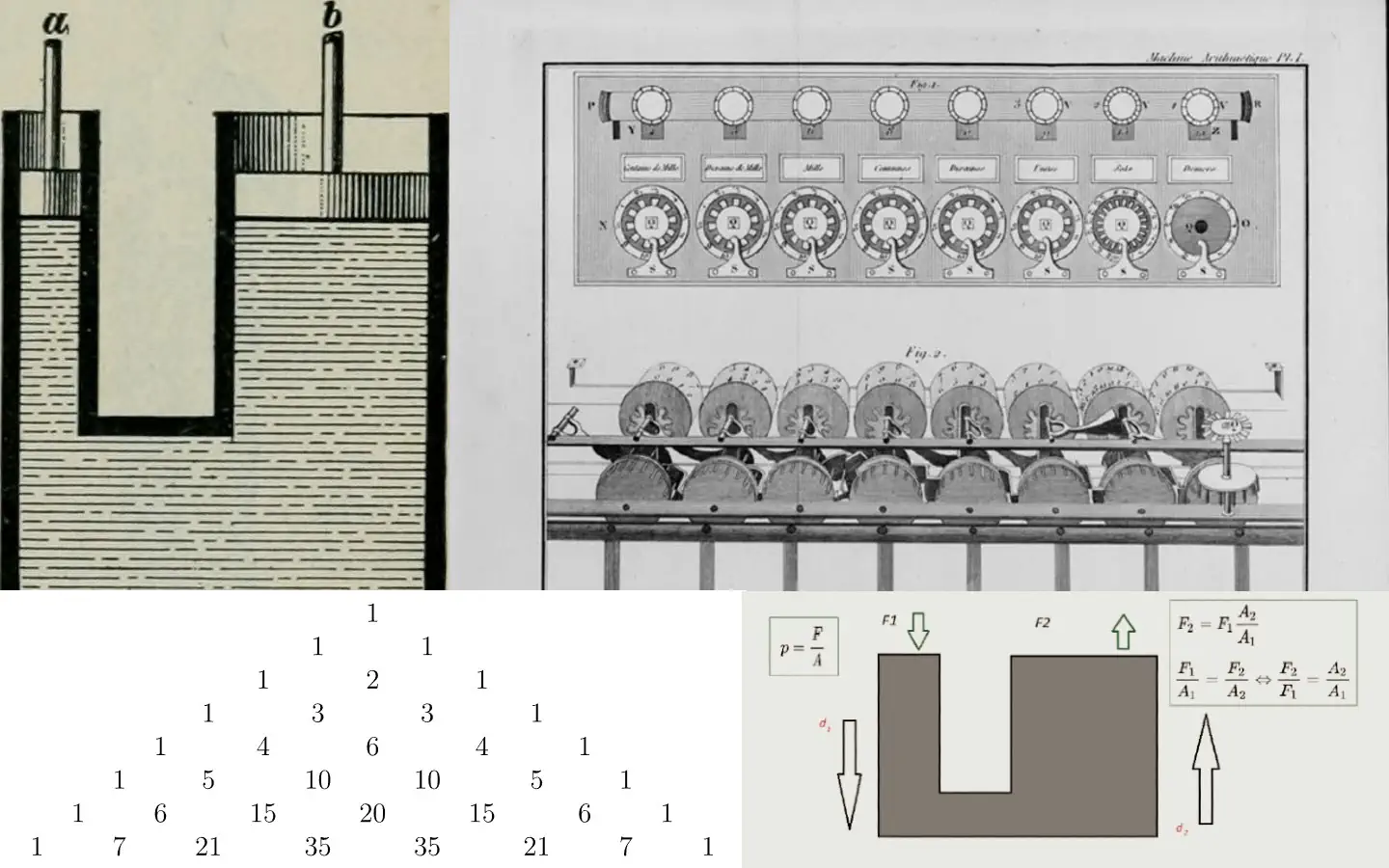Who was Blaise Pascal?
Blaise Pascal, born on June 19, 1623, in Clermont-Ferrand, France, was a polymath who excelled in the fields of science, mathematics, philosophy, and theology. His contributions to mathematics and physics, especially during the 17th century, laid the groundwork for essential principles still relevant today.
Pascal was a child prodigy, who displayed remarkable intellectual abilities from an early age. His father, Étienne Pascal, recognized his son’s potential and ensured he received a rigorous education in literature, science, and mathematics.
Pascal’s early work in mathematics at the age of 16 focused on projective geometry, and he quickly became a member of the prestigious French Academy of Sciences. He made groundbreaking discoveries in the field of probability theory, introducing concepts that would later influence the development of modern probability and statistics.
Later in his life, Pascal turned his attention to philosophy and theology. His famous work, “Pensées,” delves into his thoughts on religious faith, the nature of humanity, and the wager that one should believe in God for practical reasons even if the existence of God cannot be proven.
Pascal’s Law
One of Pascal’s most significant contributions to physics was his formulation of Pascal’s Law. Published in 1653, this law states that a change in pressure applied to an enclosed fluid is transmitted undiminished to all portions of the fluid and to the walls of its container. This principle became fundamental to the science of fluid mechanics and hydraulic engineering.

Mechanical Calculators
Pascal’s mechanical genius extended to the realm of computing. In 1642, at the age of 19, he invented the Pascaline, the first mechanical calculator. This device, although rudimentary by today’s standards, represented a pioneering leap in the automation of arithmetic calculations. The Pascaline used gears and wheels to perform addition and subtraction, reducing the potential for human error in tedious mathematical computations.

Pascal’s Triangle
In the realm of mathematics, Pascal’s Triangle is another enduring legacy. This triangular array of numbers, where each number is the sum of the two directly above it, holds deep connections to binomial coefficients and probability theory. The patterns within Pascal’s Triangle have applications in algebra, combinatorics, and probability distributions.

Legacy
Blaise Pascal’s impact on science, mathematics, and philosophy is immeasurable. He passed away in 1662, but Pascal’s law remains a cornerstone of fluid mechanics, and his contributions to probability theory continue to influence fields ranging from statistics to game theory. His philosophical musings still resonate with those contemplating the interplay between faith and reason.
Blaise Pascal’s life and work embody the essence of a Renaissance thinker.
